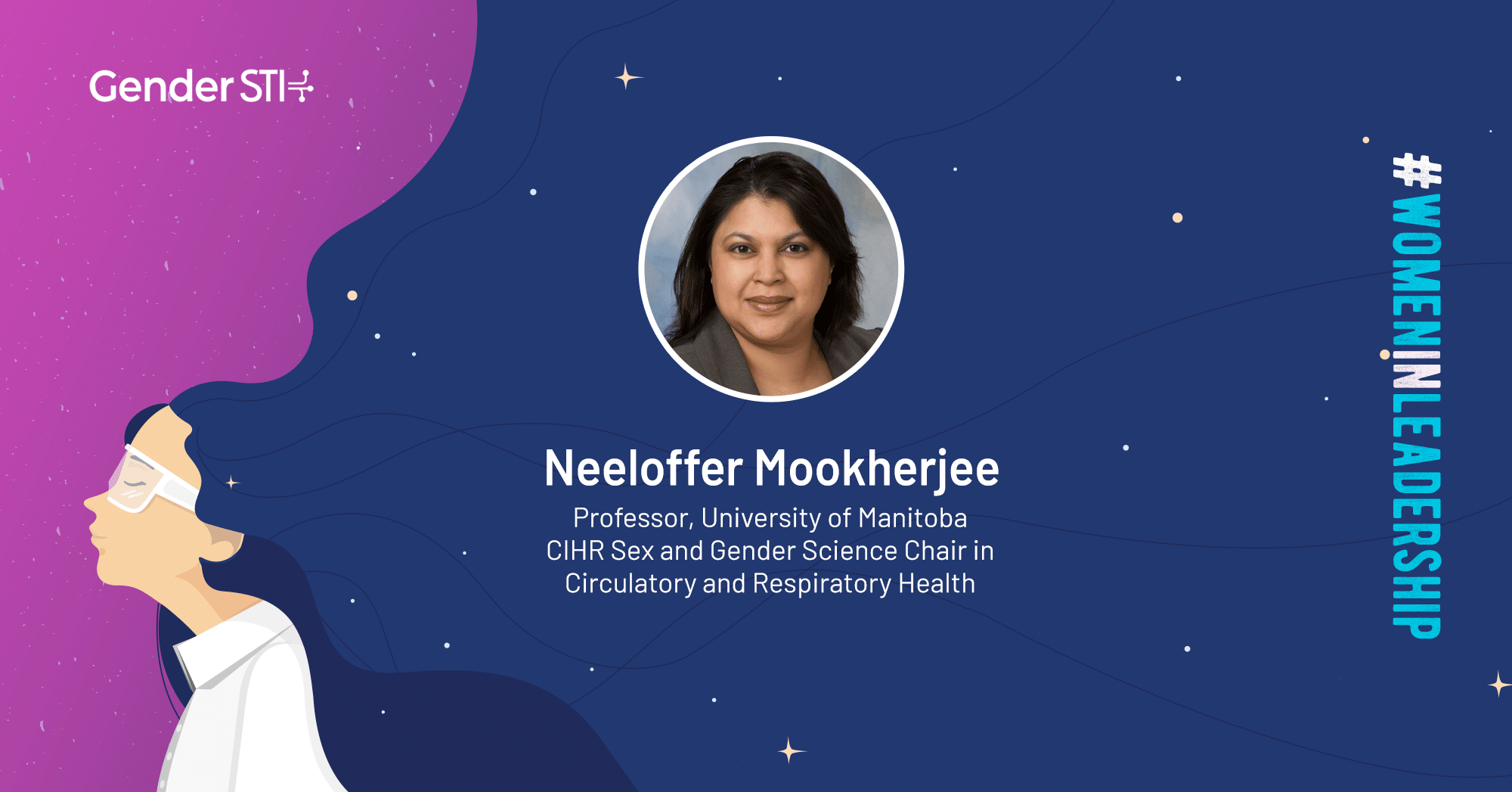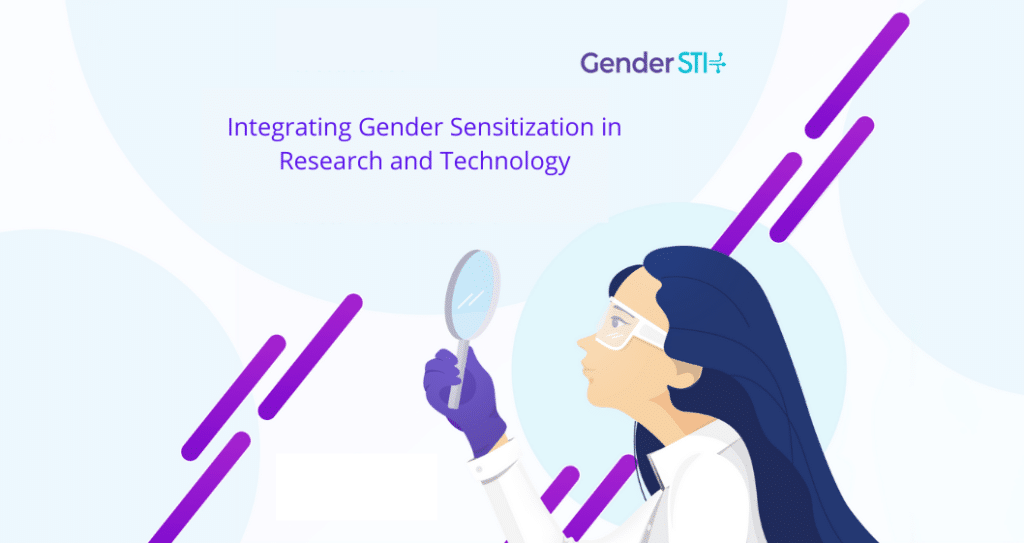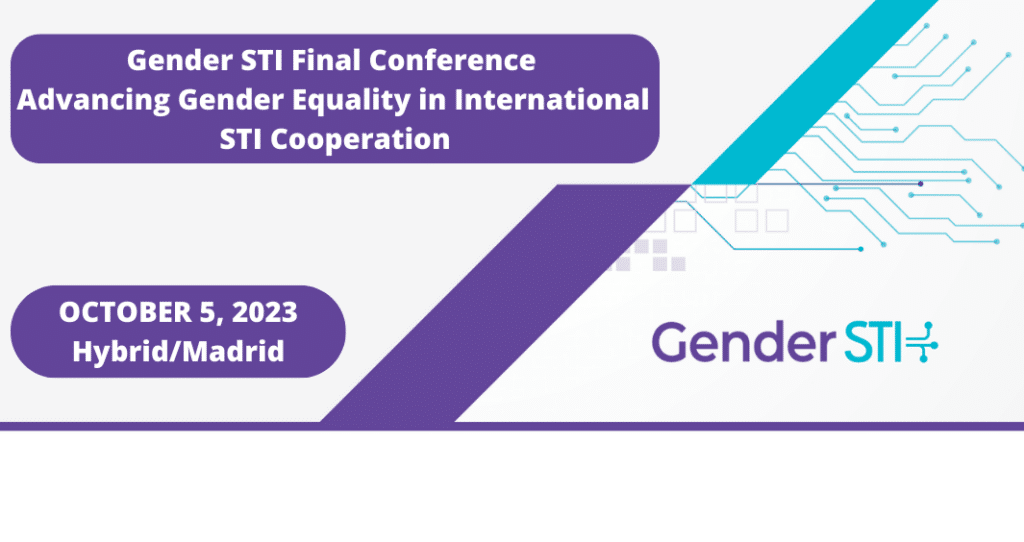Neeloffer Mookherjee was nominated for Gender STI's #WomenInLeadership Campaign, which celebrates women leaders in science, technology and innovation, by the Canadian Institutes of Health Research’s (CIHR) Institute of Gender and Health.
She is a Professor at the University of Manitoba in Canada. Mookherjee leads an internationally recognized research program on chronic inflammatory diseases, with focus on the immunity-related functions of molecules known as host defence or antimicrobial peptides. She is also the Canadian Institutes of Health Research's (CIHR) Sex and Gender Science Chair in Respiratory Health. Mookherjee is at the forefront of integrating Sex- and Gender- Based Analysis (SGBA) in respiratory research.
Mookherjee is a strong advocate for women in science. She is the current Chair of WISDOM (Women In Science: Development, Outreach and Mentoring), an initiative within the Rady Faculty of Health Sciences at the University of Manitoba.
She spoke to Gender STI about her experience as a woman leader in honor of International Women's Day 2021.
Can you tell us a bit about your job and your responsibilities?
I am a Professor at The University of Manitoba, in Canada. I am a molecular immunologist, and lead a research group that is focused on understanding changes in the immune system that contribute to chronic inflammation in diseases such as asthma and arthritis. I study how inflammation is mediated by environmental exposures in the lungs and the impacts of common allergens in asthma. My group uses various Systems Biology approaches (i.e. genomics and proteomics) to identify molecular hubs within inflammatory networks in the body, and to define disease-related biosignatures (e.g. protein panels) that can predict disease progression, and response to therapy in chronic inflammatory diseases. I am particularly interested in the immunobiology of molecules known as Host Defence Peptides. These molecules can regulate inflammation, and also have strong antimicrobial properties. My research aims to use these molecules to design new therapies for chronic inflammatory diseases which will have the advantage of controlling chronic inflammation without compromising the patient’s ability to resolve infections. This represents an urgent and unmet clinical need.
In recent years, there has been an increased awareness of the importance of sex and/or gender as critical variables in scientific investigation. Traditionally, biological sex has been ignored in biomedical research, with many drugs being developed and tested exclusively on male subjects. This ultimately resulted in treatments that were less effective when applied to women. I have pivoted my research to incorporate Sex- and Gender- Based Analysis (SGBA) as a fundamental component of the studies undertaken in my lab. In recognition of this shift, I was recently awarded a Canadian Institutes of Health Research (CIHR) Sex and Gender Science Chair, in Respiratory Health. In this role I am seeking to promote SGBA, not just in my own program, but among the larger scientific community. A significant component of my Chair is dedicated to capacity building, which is allowing me to promote SGBA at individual, organizational and institutional levels, in partnership with various research networks in Canada and internationally.
I am also the Chair of WISDOM (Women In Science: Development, Outreach & Mentoring), an organization that I established with support from the Dean of Rady Faculty of Health Sciences at the University of Manitoba. I started this group in response to an overwhelming need for professional support that I saw reflected in my own experience, and in the experiences shared with me by my many women colleagues. WISDOM’s vision is to connect, mentor, inspire and support academic women in science. My responsibilities in this role include organizing resources to help overcome the barriers faced by women in science and medicine, as well as mentoring women who want to develop into positions of leadership at our institution.
As an academic, my primary responsibility is to train the next generation of biomedical scientists. My research group has individuals at various levels, from undergraduate students, to graduate students pursuing their MSc and PhD research, as well as Postdoctoral Fellows. I provide training in a wide range of research methodologies and concepts in immunology, cell biology, and important new areas of life sciences research such as Systems Biology. Moreover, I encourage all my students and staff to participate in workshops focused on Equity, Diversity and Inclusion (EDI), for example those hosted by WISDOM, in order to promote inclusive excellence. I take care to tailor my mentoring style to the individual needs of my trainees. They are all unique and require different types of support to achieve their greatest potentials. That is the core definition of equity and I try to fully integrate that in my leadership style.
Did you face any challenges on your journey to become a woman leader? How did you overcome them?
I am an immigrant woman in science, in Canada. I obtained my bachelor’s degree in microbiology from the University of Mumbai (Bombay) in India before moving to Canada to pursue graduate studies. I obtained a PhD in microbiology in Dr. Terry Pearson’s research group at the University of Victoria, and completed my postdoctoral training with Dr. Bob Hancock at the University of British Columbia in Vancouver. My journey finally led to my recruitment as a faculty member at the University of Manitoba.
Although I have had wonderful mentors, both during my PhD and postdoctoral training, and as an early career investigator, none of my mentors were women. I have come to realize that we suffer from a lack of strong women role models in biomedical science. This was the impetus for me to champion the establishment of WISDOM at my university. I think it is imperative that we have strong women leaders in academic science, especially women who look like me, a woman of color. I have tried to embrace failures of which there are many in academia, always celebrate success with gusto, and continue to aim high without getting demoralized.
What goals do you have as a leader?
I aim to continue to advocate for women in science. As the Chair of WISDOM, and having worked for over two years to establish this group in Manitoba, my goal is to ensure that WISDOM endures and continues to be an avenue to provide mentoring and professional development opportunities for women in science in Manitoba and Canada. Over the long-term I would love to see this mandate expand at an international level, if possible. WISDOM is now an affiliate of the Society for Canadian Women in Science and Technology. Through WISDOM we have launched an Equity Symposium in 2019, and we hope to make this an annual national event, a conference for all those working in the space of Equity, Diversity and Inclusion in Canadian universities to come together, share experiences (both personal and professional), and collaborate on solutions to the many challenges we face as a community. My plan is to remain visible and to seek opportunities to contribute my expertise to the decision-making process in my institution and nationally. It is my hope that I can continue to serve as a role model for women in science, and instigate the positive changes for equity, diversity and inclusion initiatives within academic science, that we all want to see.
From my perspective as a researcher, one of my primary goals is to see the widespread adoption of Sex and Gender Based Analysis (SGBA) as a routine component of biomedical research. In just a few short years, we have seen tremendous growth in the recognition that SGBA is an essential component required to gain a true understanding of biological processes and in drug discovery research. I was recently elected as a co-chair for the next International Gordon Research Conference on Antimicrobial Peptides. One of the major themes within this meeting that we are developing is the inclusion of SGBA in the study of Host Defence Peptides. Similarly, I have been using my position as the CIHR Sex and Gender Science Chair in Respiratory Health to promote SGBA to a variety of academic societies, including the Canadian Society for Immunology, and within members of the Canadian Respiratory Research Network. I am striving to be a leader in this space because I want to see change on the national stage, and I can only hope to realize that goal by promoting a positive message and leading by example.
How would you describe the gender balance in decision making in science, technology and innovation (STI)?
This is the area where striving for greater equity has the best chance of promoting lasting change in STI. At present, there is a woeful lack of inclusion and diversity among decision makers in STI. We need to find new and better ways to encourage women to pursue STEM fields, and moreover aim to pursue leadership positions within their institutions. Lack of diverse representation among the leadership positions and decision makers of STI is a major challenge. This has a direct impact on policy within organizations and leads to work spaces that are not conducive to supporting women in STI. If we strive to change the ‘face’ of leadership, to make it more inclusive and integrate diverse perspectives, it will be easier to implement institutional changes that will sustain equity and greater diversity over the long term. We also need to acknowledge the complex intersectionality of gender and race, for example, to truly facilitate diverse perspective within leadership. This, over time, will hopefully normalize gender equity and increase diversity among decision makers in STI.
What would you tell young girls and women who would like to become leaders in their professional fields one day?
I would say remember it takes a village; work together, hear each other, and as a leader promote the voices of women who feel they don’t belong. To me the most important skills as a leader are that of empathy and the ability to listen.
We all need mentors, at all stages, albeit mentors change as we evolve in our careers. To that end, I would encourage women to seek out mentors, as well as pay it forward by becoming a mentor to women in your professional field. You will always have younger women and girls coming up behind you who can benefit from your experience, no matter the level you are currently at.
At a fundamental level, I would also say that you need to sustain your curiosity. Although there will be barriers, don’t let them discourage you and don’t be afraid to challenge the status quo. Pursue what drives you and makes you smile.
As you may know, the Gender STI project focuses on promoting gender equality in international cooperation in STI. Do you have any ideas on how we could promote gender equality in this area?
One of the challenges for women in leadership roles in STI is the lack of strong professional networks, and the isolation can be demoralizing and unsustainable. Also, changes enforced through policy alone have limited impact, because they come across as ‘enforced’ and thus do not result in the attitudinal shift that is required to overcome issues of inequality. In academia, this can be addressed by developing communities of academic professionals who are committed to promoting women, and engaging in regular public discourse on the complexities and challenges being faced by women in science. To truly promote gender equity, there needs to be a grassroots effort that works to raise awareness of the problems and promotes changes to attitudes through regular open dialogue. I established WISDOM (Women In Science: Development, Outreach and Mentorship) at the University of Manitoba to fulfill just such a role. With membership from women and men, at all levels of seniority, this group provides a framework for supporting women in science and medicine at my institution, thus highlighting the need for equity in an academic professional setting.
However, it is also important to remember that gender is not binary. We must acknowledge that gender bias exists in large organizations, and also distinct challenges are faced by those within the LGBTQ+ community. Work that is being done to promote and mentor women in STI, can be extended to ensure diversity in our work spaces for all genders. We can achieve equity only when we understand what different groups need to be successful, acknowledging this intersectionality is important if we are to achieve true equity within STI.
What do you think needs to be done to increase the number of women leaders in STI?
I sincerely think that the onus to increase the number of women leaders in STI should not solely fall on women in STI. This is a challenge for everyone. We know that diverse thinking propels innovation. To that end, we all need to work together to mentor and promote women in STI, and ensure that work spaces are supportive to the needs of women. Increasing the representation of women in leadership can be done by actively promoting women to take on relevant leadership roles and being cognizant of the barriers at an institutional level. For example, at an institutional level we can work to make resources flexible, so that they can be adapted to the individual need of a woman, rather than requiring women to adapt to the structure of the organization. In addition, we need to redefine what we mean by a leader, and develop better advancement criteria that acknowledge both barriers and accomplishments. This will help organizations to more fully recognize the tangible skillsets and potential of individuals, instead of relying on subjective perceptions of competency. Until this becomes a self-sustaining reality, organizations need to proactively re-evaluate and adapt processes in order to support and promote women leaders in STI.
Follow Gender STI’s #WomenInLeadership campaign on Twitter, LinkedIn and Facebook for more great interviews. Join the conversation using #WomenInLeadership, #IWD2021 and #GenderSTI.



